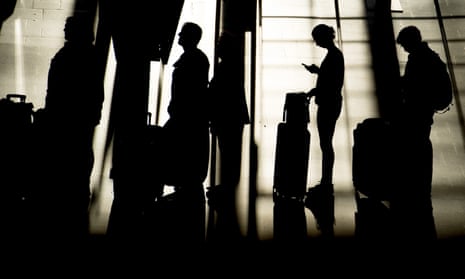Britain could have chosen to have blue passports while remaining a member of the EU, the European parliament’s chief Brexit coordinator has said, dismissing Theresa May’s claim that the move is a victory for British sovereignty.
The government has said blue passports will mean enhanced freedom for Britons, but EU officials have said they could spell travel delays and extra paperwork because of diminished travel rights post-Brexit.
Guy Verhofstadt emphasised that there was no Brussels regulation stating that EU countries’ passports had to be a certain colour. There is a legally non-binding European council resolution from 1981 which recommends burgundy.
Verhofstadt tweeted on Saturday:
There is no EU legislation dictating passport colour. The UK could have had any passport colour it wanted and stay in the EU https://t.co/bkQX0T0F2Q
— Guy Verhofstadt (@guyverhofstadt) December 23, 2017
May divided domestic opinion on Friday when she confirmed the return of navy travel documents, which she called an expression of “independence and sovereignty” that reflected “citizenship of a proud, great nation”.
Sources in Brussels, however, told the Guardian shortly afterwards that any privileges relied on further negotiations on issues of free movement after Brexit.
One senior official said there was a significant risk that British passport-holders would lose the right to use fast-track citizens’ lanes when travelling on the continent and may also be obliged to use a new visa waiver scheme.
The EU travel information and authorisation system (Etias) is modelled on the US Esta scheme and could require British travellers to Europe to register in advance and make a small administrative payment. Although a chance remains for Britain to retain fast-track privileges if there is a further shift in the prime minister’s red lines on immigration, British experts have also said this looks unlikely.
The new passports will be phased in after the UK leaves the EU on 29 March 2019.
The tendering process for printing them is expected to take place under existing EU procurement rules, something that the current British contractor, De La Rue, recently said could mean they were produced abroad.
Tories leavers have taken issue with this, demanding the new documents be produced in the UK. Jacob Rees-Mogg tweeted: “Symbolism is important and I hope it will be printed in the UK too.” Andrew Bridgen told the Daily Mail: “Passports are symbolic of our national identity and sovereignty and of course they should be manufactured in the UK.”
Friday’s announcement has been largely cheered by Brexit supporters, including Nigel Farage and the foreign secretary, Boris Johnson, after a string of concessions by the government. During a trip to Moscow, Johnson told ITV News he remembered “a sense of personal loss and outrage” when blue passports were “taken away”.
Others rejected the prime minister’s assertions. The Scottish first minister, Nicola Sturgeon, tweeted: “The open, inclusive, civic, internationalist Scottish independence movement that I’m so proud to be part of could not be further removed from this insular, inward looking, blue passport-obsessed nonsense.
“Never has ‘stop the world, Scotland wants to get on’ felt more relevant.”
The Labour MP Chuka Umunna said: “What utter nonsense. This belittles our country and your office,” and the party’s former leader Ed Miliband added: “It is an expression of how mendacious, absurd and parochial we look to the world.”
